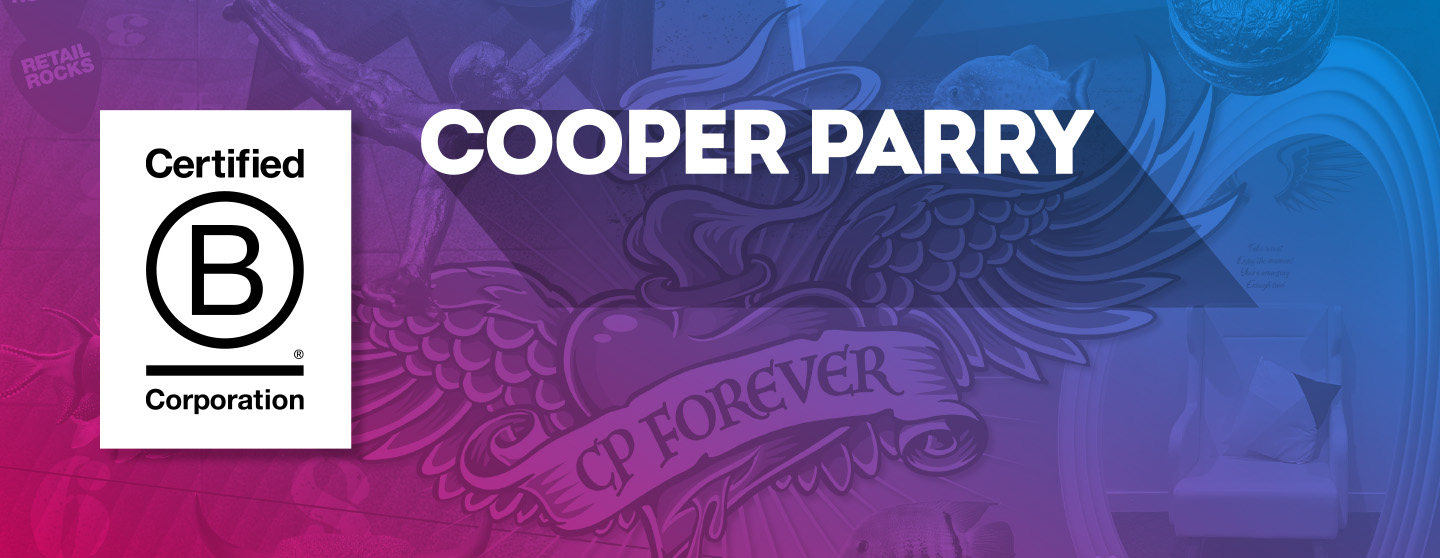

Cooper Parry Group Holdings Limited

Derbyshire, United Kingdom
February 2023
Other financial services
Service with Minor Environmental Footprint
United Kingdom
Cooper Parry (CP) is one of the fastest-growing, culturally driven and rebellious firms of accountants and business advisers in the UK. Their multi-award-winning teams support like-minded entrepreneurial businesses across the UK and overseas, covering the spectrum of Audit, Tax, Innovation, Tech & High Growth, Outsourced Finance Services, Corporate Finance and Wealth Management. With origins dating back to 1850, CP have been dubbed “the rebels of accountancy” after the new generation of Partners dramatically overhauled the firm’s strategy and brand to reflect a bolder, more innovative, culture-centric approach to professional services 20 years ago. Today, CP’s purpose is to “Disrupt, Lead and Make Life Count” – for their people, their clients, their local communities, and our planet. The firm has clocked up 6 consecutive years in The Sunday Times 100 Best Companies to Work For list, as well as being named the #1 Accountancy Firm to Work For in the UK, with Glassdoor and NPS scores that consistently out-perform peers as ‘best in class.’
Overall B Impact Score
Governance 8.8
Governance evaluates a company's overall mission, engagement around its social/environmental impact, ethics, and transparency. This section also evaluates the ability of a company to protect their mission and formally consider stakeholders in decision making through their corporate structure (e.g. benefit corporation) or corporate governing documents.
What is this? A company with an Impact Business Model is intentionally designed to create a specific positive outcome for one of its stakeholders - such as workers, community, environment, or customers.
Workers 38.3
Workers evaluates a company’s contributions to its employees’ financial security, health & safety, wellness, career development, and engagement & satisfaction. In addition, this section recognizes business models designed to benefit workers, such as companies that are at least 40% owned by non-executive employees and those that have workforce development programs to support individuals with barriers to employment.
Community 20.7
Community evaluates a company’s engagement with and impact on the communities in which it operates, hires from, and sources from. Topics include diversity, equity & inclusion, economic impact, civic engagement, charitable giving, and supply chain management. In addition, this section recognizes business models that are designed to address specific community-oriented problems, such as poverty alleviation through fair trade sourcing or distribution via microenterprises, producer cooperative models, locally focused economic development, and formal charitable giving commitments.
Environment 12.3
Environment evaluates a company’s overall environmental management practices as well as its impact on the air, climate, water, land, and biodiversity. This includes the direct impact of a company’s operations and, when applicable its supply chain and distribution channels. This section also recognizes companies with environmentally innovative production processes and those that sell products or services that have a positive environmental impact. Some examples might include products and services that create renewable energy, reduce consumption or waste, conserve land or wildlife, provide less toxic alternatives to the market, or educate people about environmental problems.
Customers 4.0
Customers evaluates a company’s stewardship of its customers through the quality of its products and services, ethical marketing, data privacy and security, and feedback channels. In addition, this section recognizes products or services that are designed to address a particular social problem for or through its customers, such as health or educational products, arts & media products, serving underserved customers/clients, and services that improve the social impact of other businesses or organizations.